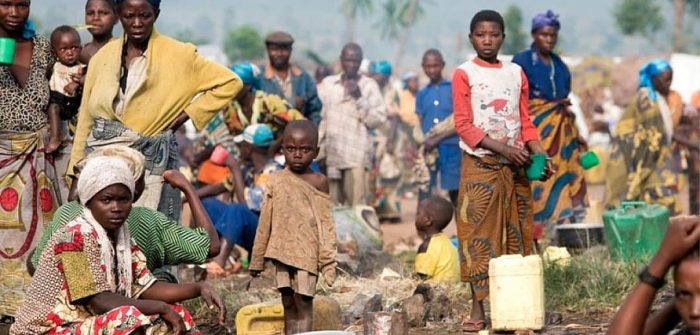South Sudan, the world’s youngest country, has faced immense challenges since gaining its independence from Sudan in 2011.

Despite its vast natural resources and potential for economic growth, the nation remains one of the poorest country and most conflict-ridden in the world.
Even though South Sudan has rich oil reserves, this landlocked state, which is home to around 15 million people is a prime example of the “resource curse”.
The abundance resource has lead to political and social conflict, inequality, corruption, and war. This year, over 60% of their population will require humanitarian help.
Why South Sudan Is The Poorest Country
1. Ongoing Conflict and Political Instability
South Sudan has faced continuous conflict since its independence in 2011. The civil war, which broke out in 2013, caused widespread violence, displacement, and destruction.
Political instability, caused by ethnic tensions and rivalry between leaders, has severely hindered the country’s development.
The ongoing insecurity prevents economic growth and makes it difficult for international aid and investment to reach the people in need.
2. Dependence on Oil
South Sudan’s economy is heavily reliant on oil, which accounts for over 90% of its revenue. However, this makes the country vulnerable to fluctuations in oil prices.
The lack of diversification into other sectors, such as agriculture or manufacturing, limits job opportunities and economic stability, leading to it being the poorest country.
Moreover, oil infrastructure has been damaged during the conflict, further affecting the country’s income.
3. Weak Infrastructure
South Sudan’s infrastructure is underdeveloped, with limited access to roads, electricity, clean water, and healthcare.
The lack of basic services makes it harder for businesses to thrive and for people to access essential resources.
People Also Read: Mpox Outbreak: Nigeria, Eight others get 899,000 Mpox Vaccine
Poor infrastructure also contributes to high transportation costs and delays in delivering aid and goods, especially in rural areas.
4. Corruption and Poor Governance
Corruption is widespread in South Sudan, with public resources often mismanaged by the government.
This prevents the country from effectively using its wealth, such as oil revenue, to improve education, healthcare, and infrastructure.
Poor governance and a lack of strong institutions also undermine efforts to combat poverty and create long-term development.
5. Food Insecurity
South Sudan struggles with chronic food insecurity due to a combination of conflict, climate change, and poor agricultural practices.
Many people rely on subsistence farming, but violence and environmental challenges such as droughts and flooding have made it difficult to grow enough food.
As a result, a large portion of the population suffers from malnutrition and hunger, which further made South Sudan the poorest in the world.
These causes are deeply linked, and addressing them will require a long-term, coordinated effort focused on peacebuilding, economic diversification, and good governance.

